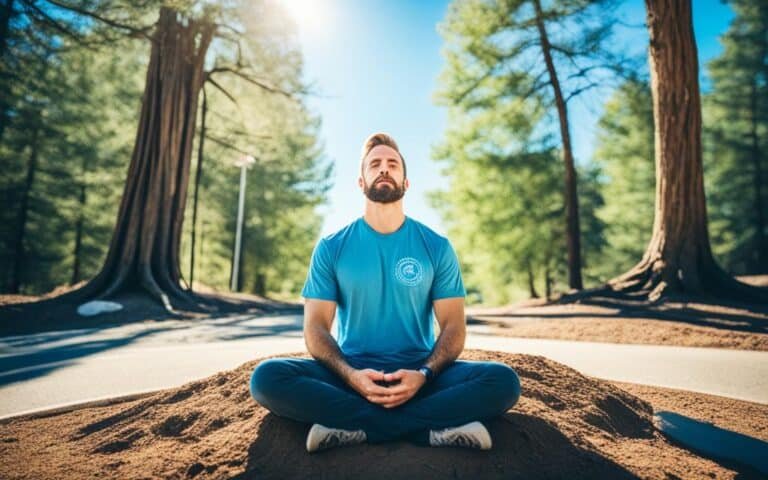Dear reader,
Have you ever felt a wave of sadness wash over you as you mindlessly scroll through your social media feeds? Have you experienced a pang of jealousy or insecurity after seeing the seemingly perfect lives of others? If so, you’re not alone. Social media has become an ubiquitous presence in our lives, but it’s important to recognize that it can come with its fair share of negative effects on our mental health and overall well-being. In this article we will look into 10 negative effects of social media on mental health.
We live in a world where likes, comments, and followers hold so much weight. Comparison has become the norm, and the constant exposure to carefully curated highlight reels can leave us feeling inadequate and unworthy. The pressure to keep up appearances and present a flawless version of ourselves can be overwhelming, taking a toll on our mental health in ways we might not even realize. But don’t worry, there is hope. By understanding these 10 negative effects of social media and implementing strategies to manage its impact, we can reclaim control over our mental well-being and find a healthier balance with technology. In this article, we will explore ten of the most common negative effects of social media on mental health and provide practical tips for navigating the digital landscape in a way that promotes positive mental health.
Remember, you are not alone in this journey. It’s time to put your mental health first and take back control from the grips of social media. Let’s embark on this exploration together and equip ourselves with the knowledge and tools needed to thrive in the digital age.
Understanding Social Media’s Impact on Mental Wellness
Social media platforms have revolutionized the way we connect with others and share information. From scrolling through news feeds to engaging in virtual conversations, social media offers a plethora of opportunities for social connectivity. However, it is essential to understand the psychological aspects behind social media and its impact on our mental wellness.
The Psychology Behind Social Connectivity
Social media provides a sense of belonging and social rewards through likes, comments, and shares. These positive social interactions trigger the release of dopamine, a neurotransmitter associated with pleasure and reward. As a result, our brains develop an association between social media use and feelings of gratification, leading to a desire for more engagement.
“Social media platforms are designed to keep us engaged by leveraging psychological principles. The constant stream of notifications, likes, and comments creates a feedback loop that keeps us hooked to our screens.”
This addictive nature of social media can affect our overall mental well-being. Excessive use may lead to feelings of comparison, inadequacy, and FOMO (fear of missing out), negatively impacting our self-esteem and mental health.
Balancing Virtual and Real-Life Interactions
While social media allows us to connect with people from all over the world, it is important to strike a balance between virtual and real-life interactions. Virtual interactions can provide a sense of community and support, but they should not replace face-to-face interactions and genuine human connections.
To maintain a healthy mental well-being, it is crucial to engage in meaningful real-life interactions. Spending time with friends, family, and loved ones in person can help foster a sense of belonging, reduce feelings of loneliness, and improve overall mental wellness.
| Virtual Interactions | Real-Life Interactions |
|---|---|
| Offers a wide network of connections | Provides genuine human connections |
| May increase feelings of comparison and inadequacy | Boosts self-esteem through meaningful interactions |
| Can contribute to social isolation | Reduces loneliness and fosters a sense of belonging |
By striking a balance between virtual and real-life interactions, we can harness the benefits of social media while prioritizing our mental wellness.
10 Negative Effects of Social Media
Social media platforms have undoubtedly transformed the way we connect, communicate, and consume information. However, the excessive use of social media can have significant negative effects on our mental health and overall well-being.
Let’s explore 10 negative effects of social media that can arise from prolonged engagement.
- Increased feelings of inadequacy: Constant exposure to carefully curated and idealized lifestyles on social media can amplify feelings of inadequacy and lead to a decreased sense of self-worth.
- Fear of missing out (FOMO): Seeing others’ exciting experiences and social gatherings on social media can trigger FOMO, causing anxiety and a fear of being left out.
- Cyberbullying: Online platforms provide an avenue for bullying and harassment, leading to emotional distress, depression, and even suicidal ideation.
- Negative impact on self-esteem: Comparing oneself to others’ highlight reels on social media can negatively impact self-esteem, leading to feelings of inadequacy and self-doubt.
- Difficulty focusing: The constant stream of notifications and content on social media can make it challenging to concentrate, resulting in decreased productivity and cognitive overload.
- Diminished real-life social interactions: Excessive social media use often replaces face-to-face interactions, leading to a decline in meaningful connections and increased feelings of loneliness and isolation.
- Sleep disturbances: The blue light emitted by screens and the addictive nature of social media can disrupt sleep patterns, leading to insomnia and poor sleep quality.
- Negative body image: The prevalence of edited and filtered images on social media can contribute to body dissatisfaction and the development of unhealthy eating habits.
- Increased anxiety: The constant exposure to information overload, sensationalized news, and online opinions can contribute to heightened anxiety and stress levels.
- Time wasting: Mindless scrolling on social media can eat up significant amounts of time, leaving less time for productive activities and self-care.
To better understand the detrimental effects of social media, let’s take a closer look at each of these areas and explore strategies for managing and mitigating these negative impacts on our mental health and well-being.

Exploring the Links Between Social Media Addiction and Mental Health
Addiction to social media can have detrimental effects on our mental health. In this section, we will delve into the links between social media addiction and mental health, shedding light on the underlying factors that contribute to this phenomenon.
Dopamine Driven Feedback Loops
One of the key aspects driving social media addiction is the role of dopamine-driven feedback loops. Dopamine is a neurotransmitter associated with pleasure and reward. When we receive likes, comments, or notifications on social media platforms, our brains release dopamine, creating a pleasurable sensation.
Over time, this dopamine release forms a feedback loop, where we crave more engagement and validation from our online interactions. This constant reinforcement keeps us hooked to our screens, leading to compulsive social media use and a potential neglect of other areas of our lives.
It’s important to recognize and understand the power of these dopamine-driven feedback loops in order to break free from social media addiction and mitigate its impact on our mental health.
Digital Burnout and Screen Fatigue
Another consequence of excessive social media use is digital burnout and screen fatigue. Spending too much time scrolling through news feeds, consuming endless content, and engaging in online interactions can lead to feelings of mental and emotional exhaustion.
The constant exposure to digital screens can strain our eyes, disrupt our sleep patterns, and negatively impact our overall well-being. This screen fatigue can contribute to increased stress, anxiety, and a decline in mental health.
Recognizing the signs of digital burnout and implementing strategies to reduce screen time can help restore balance and protect our mental health from the negative effects of excessive social media use.
| Effects of Social Media Addiction on Mental Health |
|---|
| Increased anxiety and stress levels |
| Depression and feelings of loneliness |
| Decreased self-esteem and feelings of inadequacy |
| Impaired concentration and decreased productivity |
| Sleep disturbances and disrupted sleep patterns |
| Escapism and avoidance of real-life responsibilities |
| Loss of interpersonal connections and social isolation |
| Negative impact on body image and self-perception |
| Increased risk of cyberbullying and online harassment |
| Compromised privacy and personal information security |
The Role of Cyberbullying in Online Spaces
Cyberbullying has emerged as a significant issue in online spaces, with social media platforms providing a breeding ground for harassment and abuse. The anonymity and accessibility of the internet have made it easier for individuals to engage in harmful behaviors, leading to serious consequences for victims’ mental health.
Cyberbullying refers to the use of electronic communication to harass, intimidate, or demean others. It can take various forms, including sending abusive messages, spreading rumors, sharing private information without consent, or posting derogatory comments on social media platforms. The impact of cyberbullying on mental health cannot be underestimated.
“The effects of cyberbullying can be devastating. Victims may experience increased levels of stress, anxiety, and depression. They may develop low self-esteem, feelings of shame, and social withdrawal. In severe cases, cyberbullying has even been linked to suicidal ideation and self-harm.” – Dr. Sarah Thompson, Clinical Psychologist
The psychological consequences of cyberbullying can be long-lasting and may extend beyond the online world. Victims often feel trapped and helpless, as cyberbullying can invade their personal lives and follow them wherever they go. The constant exposure to negative and hurtful messages can erode their sense of self-worth and lead to a decline in mental well-being.
Addressing and preventing cyberbullying in online communities is crucial for protecting the mental health of individuals. It requires a collective effort from platform administrators, educators, parents, and users themselves. Strategies for combating cyberbullying can include:
- Implementing strict community guidelines and policies that discourage cyberbullying behavior.
- Encouraging open communication and educating users about the impact of cyberbullying.
- Empowering victims to report instances of cyberbullying and providing them with the necessary support and resources.
- Fostering a culture of positivity and empathy in online spaces, promoting kindness and respect.
By taking a proactive approach in addressing cyberbullying, we can create safer and healthier online spaces that prioritize mental well-being for all users.
Strategies for Addressing and Preventing Cyberbullying
| Strategies | Description |
|---|---|
| Implement strict community guidelines and policies | Create rules that explicitly prohibit cyberbullying behavior and enforce consequences for violators. |
| Educate users about the impact of cyberbullying | Provide information and resources to help users understand the harm caused by cyberbullying and promote empathy. |
| Empower victims to report instances of cyberbullying | Establish easy-to-use reporting systems and ensure victims receive appropriate support and guidance. |
| Foster a culture of positivity and empathy | Promote kindness, respect, and inclusivity, encouraging users to support and uplift one another. |

Decreased Social Interaction and Increasing Isolation
Excessive use of social media can have a detrimental impact on your social interaction and lead to feelings of isolation. When you spend too much time on social media platforms, you may find yourself engaging less in face-to-face conversations and meaningful interactions with others. This can result in a decrease in social interaction, making it difficult to build and maintain relationships.
Social media platforms can create a false sense of connection, where scrolling through feeds and liking posts replace genuine, personal interactions. While online interactions have their benefits, such as connecting with people from different locations, it is important to remember the value of in-person conversations and quality time spent with loved ones.
Isolation, often a consequence of decreased social interaction, can have a significant impact on your mental health. Feelings of loneliness and disconnection can contribute to increased stress, anxiety, and depression. Human beings are social creatures by nature, and a lack of social interaction can negatively affect overall well-being.
To combat the negative effects of social media on social interaction and isolation, it is important to prioritize real-life connections.
Here are some strategies to promote healthy social connections:
- Limit your time on social media platforms and allocate more time for face-to-face interactions.
- Engage in activities and hobbies that involve group participation, such as joining clubs or organizations.
- Make an effort to reach out to friends and loved ones regularly, either through phone calls, video chats, or meeting up in person.
- Seek opportunities to meet new people and expand your social network, such as attending social events or joining community groups.
- Practice active listening and meaningful conversations when interacting with others, both online and offline.
By prioritizing real-life interactions and taking steps to maintain healthy social connections, you can counteract the negative impact of social media on social interaction and reduce feelings of isolation.
How Sleep Disturbances Are Tied to Social Media Use
Social media use has been associated with sleep disturbances and poor sleep quality. The constant exposure to screens, the blue light emitted by devices, and the stimulating content can disrupt our natural sleep patterns.
The Influence on Sleep Quality and Patterns
Research has shown that excessive social media use, especially before bedtime, can affect the overall quality of our sleep. The constant intake of information and engagement with online content can lead to restless nights, difficulty falling asleep, and frequent awakenings throughout the night.
Moreover, the exposure to blue light emitted by screens can suppress the production of melatonin, the hormone that regulates our sleep-wake cycle. This disruption can result in delayed sleep onset and reduced sleep duration, further impacting the quality of our sleep.
It is essential to establish a bedtime routine that includes disconnecting from social media at least one hour before sleep. Creating a tech-free environment in the bedroom and engaging in relaxing activities, such as reading a book or practicing mindfulness, can help promote better sleep quality and a more restful night’s sleep.
Adolescent Sleep and Social Media Habits
Adolescents are particularly vulnerable to the negative effects of social media on sleep. With the ever-increasing reliance on technology and the pressures of online social interactions, it is not surprising that many teenagers experience sleep disturbances.
A study published in the Journal of Pediatric Sleep Medicine found that adolescents who spent more time on social media had shorter sleep durations and increased sleep problems, such as difficulty falling asleep and disrupted sleep patterns.
It is crucial for parents and caregivers to be aware of their teenagers’ social media habits and encourage healthy digital behaviors, especially when it comes to bedtime routines. Establishing clear boundaries for social media use and promoting offline activities can contribute to better sleep and overall well-being for adolescents.
Addressing Body Image Issues Sparked by Social Media
Social media platforms have become a breeding ground for body image issues, posing significant challenges to individuals’ self-esteem. The constant exposure to carefully curated and filtered images on social media can distort reality and create unrealistic beauty standards. This pursuit of perfection perpetuated by social media can lead to negative body image and mental health outcomes.
The Pursuit of Perfection: Impact on Body Image and Self-Esteem
Social media has created an environment where individuals feel pressure to attain an unattainable level of perfection. People often compare themselves to the seemingly flawless bodies showcased on their feeds, which can result in feelings of inadequacy and dissatisfaction with their own appearance. This constant comparison and self-evaluation can harm self-esteem and contribute to body dysmorphia.
A study conducted by Fardouly, Diedrichs, Vartanian, and Halliwell (2015) found that exposure to idealized body images on social media led to increased body dissatisfaction and a desire for thinness among young women. This significant correlation between social media use and negative body image highlights the detrimental impact it can have on individuals’ self-perception.
Filter Culture and the Distortion of Reality
One aspect of social media that exacerbates body image issues is the prevalence of filters and photo editing tools. Filter culture has given rise to an unrealistic representation of beauty, where flawless skin, perfect bodies, and exaggerated features have become the norm. Users are exposed to an idealized version of reality that is unattainable without the use of filters.
This distortion of reality can lead individuals to internalize these filtered images as the standard of beauty, causing them to feel dissatisfied and self-conscious about their own appearance. A study by Perloff (2014) revealed that exposure to retouched and edited images on social media led to increased body dissatisfaction and reduced self-esteem, particularly among adolescent girls.
| Impact of Social Media on Body Image and Self-Esteem | Consequences |
|---|---|
| Comparison to idealized images | – Decreased self-esteem – Increased body dissatisfaction |
| Psychological effects of filter culture | – Distorted perception of reality – Unrealistic beauty standards |
| Internalization of unreal beauty standards | – Negative body image – Self-criticism and self-consciousness |
It is crucial to address body image issues sparked by social media and promote a healthier and more realistic perception of beauty. By raising awareness of the harmful effects of filter culture and encouraging self-acceptance, individuals can combat negative body image and enhance their overall well-being. Additionally, fostering a diverse and inclusive representation of beauty on social media platforms can contribute to a more positive and inclusive online environment.
Online Harassment and Its Consequences on Emotional Health
Online harassment, including trolling, hate speech, and online stalking, can have severe consequences on emotional health. The impact of online harassment on mental health and emotional well-being cannot be underestimated. The psychological effects of online harassment can be extremely distressing, leading to increased stress, anxiety, and depression.
Dealing with online harassment can be challenging, but it is crucial to take steps to protect your emotional health. Block and report individuals who engage in harassment, and consider limiting your social media exposure if necessary. Taking breaks from social media and seeking support from friends, family, or mental health professionals can also be beneficial.
To prevent online harassment, it is important to think before you share or comment online. Avoid engaging in online conflicts or spreading negativity. Be mindful of the impact your words may have on others and treat others with respect and empathy.

Strategies for Dealing with Online Harassment:
- Block and report individuals engaging in harassment.
- Limit your social media exposure if necessary.
- Take breaks from social media to prioritize your well-being.
- Seek support from friends, family, or mental health professionals.
By taking proactive steps to address online harassment and protect your emotional health, you can navigate online spaces with greater confidence and peace of mind.
The Threat to Privacy and Mental Peace
Understanding Privacy Concerns in the Age of Social Media
The widespread use of social media has raised significant privacy concerns. With every post, comment, and like, there is a potential risk of our personal information being accessed and shared without our consent. This section delves into the privacy concerns associated with social media, emphasizing the importance of protecting our personal data and online activities.
Social media platforms collect vast amounts of data about their users, including their interests, behaviors, and location. This data is often used for targeted advertising, but it can also be vulnerable to breaches and unauthorized access. The constant exposure of personal information on social media can lead to feelings of insecurity and anxiety, as individuals worry about the unauthorized use of their data.
“In this digital age, our online presence is a reflection of ourselves, and protecting our privacy is crucial for maintaining our sense of identity and mental peace.”
Navigating Personal Boundaries Online
Establishing and maintaining personal boundaries online is essential for preserving mental peace. It involves setting limits on the type and amount of personal information we share on social media platforms. This section provides insights on how to navigate personal boundaries effectively.
One strategy for protecting privacy and mental peace is to carefully review and adjust the privacy settings on social media accounts. By customizing settings to limit access to personal information, we can control who sees our posts and activities. Additionally, being mindful of the content we share and the people we connect with can help us maintain a balance between social connection and privacy.
Remember, taking breaks from social media and unplugging from the digital world occasionally can also contribute to mental peace. It allows us to focus on real-life relationships, engage in activities that bring joy and fulfillment, and protect our mental well-being from the constant pressures and expectations of the online world.
Distracted Living: How Social Media Draws Attention From Daily Activities
Social media has become a significant source of distraction in our daily lives, diverting our attention from important tasks and responsibilities. The constant notifications, updates, and endless scrolling can easily pull us away from what truly matters. As a result, we often find ourselves engaged in distracted living, where our focus is fragmented and diluted by the allure of social media.
The Multitasking Myth and Cognitive Costs
One common misconception is the belief in multitasking – the ability to efficiently juggle multiple tasks simultaneously. However, research shows that multitasking is a myth, and attempting to divide our attention across various activities actually comes with cognitive costs. When we engage in multitasking, our brain has to rapidly switch between tasks, leading to decreased performance, increased errors, and reduced productivity.
Impact on Productivity and Mindfulness
In addition to diminishing productivity, social media’s influence on distracted living can negatively impact our ability to practice mindfulness. Mindfulness is the state of being fully present and aware in the present moment. However, the constant distractions from social media disrupt our ability to focus, decreasing our mindfulness and overall well-being.
Moreover, research has indicated that excessive social media use is associated with higher levels of anxiety, stress, and reduced mental clarity. The constant exposure to curated and filtered highlights of others’ lives can lead to comparison and feelings of inadequacy, further impeding our ability to stay focused and present.
Overall, social media’s draw towards distracted living and the multitasking myth comes with cognitive costs and hinders our productivity and mindfulness. It is essential to recognize the impact of social media on our attention and take proactive measures to regain focus and attention on our daily activities.
Conclusion
In this article, we have explored 10 negative effects of social media on mental health and well-being. While social media platforms offer numerous benefits, excessive use can take a toll on our mental well-being. It is important to be aware of these negative effects and take proactive steps to manage its impact on our mental health.
To mitigate the negative effects of social media, it is crucial to develop healthier digital habits. One strategy is to set limits on social media use, such as designating specific times of the day for checking notifications or taking regular social media breaks. This allows you to create a healthier balance between your online and offline life, reducing the risk of negative impacts on your mental health.
In addition, cultivating mindfulness while using social media can help foster a more positive and fulfilling experience. Mindfulness involves being fully present and aware of your thoughts and feelings, even when engaging with social media. By practicing mindfulness, you can become more conscious of how social media affects your emotions and well-being, making it easier to navigate online spaces in a way that is beneficial to your mental health.
Remember, managing social media’s impact on your mental health is a personal journey, and what works for one person may not work for another. It’s essential to find strategies that resonate with you and align with your values and priorities. By implementing these strategies and creating healthier digital habits, you can enjoy the advantages of social media while maintaining your mental well-being and leading a more balanced and fulfilling life.
FAQ
What are the 10 negative effects of social media on mental health?
10 negative effects of social media on mental health, including increased feelings of inadequacy, fear of missing out (FOMO), cyberbullying, decreased self-esteem, decreased social interaction (face-to-face), sleep disturbances, body image issues, online harassment, privacy concerns, and distraction from daily activities (10 negative effects of social media).
How does social media addiction affect mental health?
Social media addiction can have detrimental effects on mental health. It stimulates dopamine-driven feedback loops, keeping users hooked to their screens. It can also lead to digital burnout and screen fatigue, contributing to negative mental health outcomes.
What is the impact of cyberbullying on mental health?
Cyberbullying, which refers to harassment and abuse on online platforms, can have severe consequences on mental health. It can lead to increased feelings of anxiety, depression, and low self-esteem among victims. It is important to address and prevent cyberbullying in online communities.
How does social media use affect social interaction and isolation?
Excessive use of social media can lead to decreased face-to-face social interaction and increased feelings of loneliness and isolation. It can negatively impact our ability to connect with others and maintain meaningful relationships.
What is the relationship between social media use and sleep disturbances?
Social media use has been found to contribute to sleep disturbances and poor sleep quality. The constant exposure to screens before bedtime can disrupt sleep patterns. Adolescents are particularly vulnerable to the negative effects of social media on sleep.
How does social media contribute to body image issues?
Social media platforms often perpetuate a pursuit of perfection, which can negatively impact body image and self-esteem. Users are exposed to unrealistic standards and filter culture, which distorts reality and can lead to body dissatisfaction and poor mental health.
What are the consequences of online harassment on mental health?
Online harassment, including trolling, hate speech, and stalking, can have severe consequences on emotional health. It can lead to increased levels of stress, anxiety, and depression. It is important to address and prevent online harassment for the well-being of individuals.
What are the privacy concerns associated with social media use?
The widespread use of social media raises concerns about privacy and its impact on mental peace. Users may feel exposed or vulnerable due to the sharing of personal information. It is important to navigate personal boundaries online to maintain a sense of mental well-being.
How does social media contribute to distracted living?
Social media can be a major source of distraction, drawing attention away from daily activities and responsibilities. The multitasking myth associated with social media can have cognitive costs and negatively impact productivity and mindfulness.
What are some strategies for managing social media’s impact on mental health?
To manage those 10 negative effects of social media on mental health, it is important to create healthier digital habits. This includes setting boundaries, limiting screen time, practicing self-care, and cultivating a balanced life that includes both online and offline interactions.










